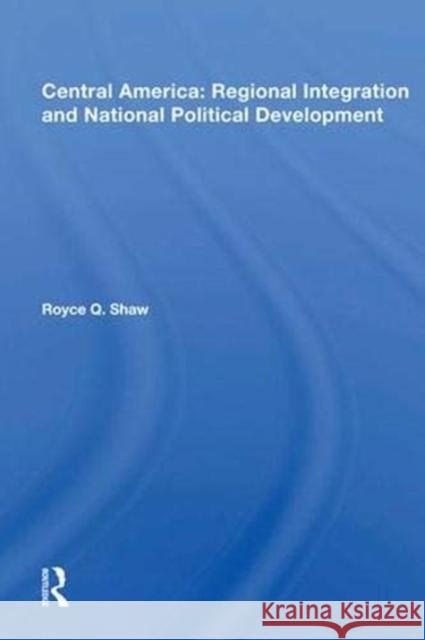Central America: Regional Integration and National Political Development » książka
Central America: Regional Integration and National Political Development
ISBN-13: 9780367017941 / Angielski / Twarda / 2019 / 254 str.
Central America: Regional Integration and National Political Development
ISBN-13: 9780367017941 / Angielski / Twarda / 2019 / 254 str.
(netto: 676,35 VAT: 5%)
Najniższa cena z 30 dni: 654,86
ok. 22 dni roboczych.
Darmowa dostawa!
This study challenges several widely held assumptions about Central American economic integration, arguing that the key to understanding the failure of the integration program lies in neither advanced economic nor regional integration theory, but in the domestic politics of the states involved. Thus, the author contends that the Common Market was not the cause of the balance-of-payments and balanced-growth crises in Central America; rather, domestic political forces were the major factor in the collapse of the market and the subsequent attempts at restructuring. Professor Shaw disputes the standard interpretations of the role of the technocrats in the integration process and demonstrates that the domestic political elites played an important role throughout. He also challenges the assumption that economic integration is always a force for conciliation, pointing out that the Common Market aggravated some of the conflicts that led to war between El Salvador and Honduras in 1969. Nor are integration programs among less developed countries necessarily instruments of political and social change, according to this analysis; on the contrary, political elites used the Common Market to bypass the internal economic reforms necessary for national development. This study incorporates new material—interview data and other primary source material—on events of the past eight years.











